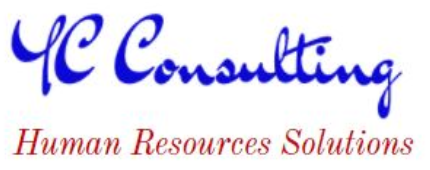The world of employment will alter in 2023. Four years into the future, the pandemic has accelerated digital transformation affected the employee-employer connection. Although HR has been altering with crisis from the previous years, which creates a chance of missing this important transformation in the working way.
2023, presents HR with a lot of opportunities to revamp the importance of the way of working in the post-pandemic world. Experts are actively involved in creating strategies for firms during the pandemic, the inflation hike and economic breaks.
Focus on overall wellbeing
Organizations are facing a crisis. The American Psychological (APA) quotes that 3 in 5 workers experience negative workplace stress after the pandemic.
87% of Americans are concerned about inflation, and 7 out of 10 workers are concerned that their pay hasn’t increased in line with changes in purchasing power.
HR will need to first deal with its own burnout crisis. Human resources specialists should put on their personal oxygen masks first, even though this may go against their profession’s inherent need to prioritize aiding others. If not, the department won’t be able to support the rest of the company.
Creating a friendly workspace ecosystem
First, HR will actively participate in managing the company’s contingent personnel. Workers like contractors, gig workers, and other contributors will be involved in the HR chain. It is important for both value generation and risk management.
While platforms like YouTube, Netflix, and TikTok outsource the majority of their content generation, Uber is the largest taxi company without drivers, and Airbnb is the largest hotel chain without accommodations. These businesses rely heavily on their contributions. HR has a part to play in integrating these contributions into its people management strategies.
Modifying remote and hybrid work settings
Throughout the pandemic, work has changed. According to McKinsey, the pandemic has fastened the transformation in firms by three to four years in digital which have adjusted in line for it. For example,
This demonstrates how businesses will face disadvantages in competition when they oppose working flexibility. In spite of this, 64% of workers thought about leaving if they were instructed to work in the office full-time. Hybrid working has allowed contemporary workplace culture.
Hopefully in the upcoming years, HR specialists will be better informed about how and where to make changes.
While companies explore various workplace strategies, they will facilitate internal discussions about this issue and encourage their organization to make decisions, even if they are only temporary.
Creating motivated organizations
Additionally, HR will concentrate on establishing purpose-driven businesses in 2023. The relevance of purpose in today’s enterprises is one of the basic transformations we’ve witnessed over the last few years. This is the outcome of four motivating factors:
COVID. Nearly two-thirds of US employees acknowledge that the pandemic has significantly changed their priorities. 82% of respondents think it’s critical for a business to have a mission.
Automation. As the first tasks to be automated are those that are mundane and repetitive,81% of workers feel that this will result in more meaningful employment changes in the population.
While Gen Z and Millennials place greater emphasis on values and purpose than their elder counterparts do, retired people may choose to work longer if the employment is meaningful to them.

